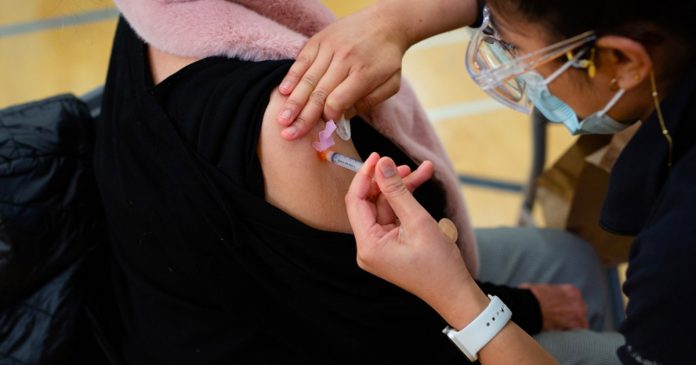Millions of Canadians followed the advice of the federal government and decided to mix their COVID-19 vaccines. However, many of these vaccinated individuals may now be turned away at certain borders or mandated to quarantine in other countries.
The Canadian government has the daunting task of convincing skeptical countries to allow Canadians who have received a mixed course of COVID-19 vaccines to travel across their borders. The Association of Canadian Travel Agencies (ACTA) says it may be a difficult task, but Canada has to try.
The director at ACTA Richard Vanderlubbe said Canada should feel obliged to deal with countries rejecting Canadians who have taken mixed vaccines.
“The problem we have here in Canada is that we’re one of the few places that have really done this in any significant way, and Canada is a tiny travel market compared to the whole world,” said Vanderlubbe.
There are about 3.9 million fully vaccinated Canadians who have received two different vaccines, not including people from Quebec where data on mixed vaccines is unavailable. About 1.5 million of these Canadians received a first dose of the AstraZeneca vaccine and then a second dose of either the Pfizer-BioNTech or Moderna vaccines.
Several countries, such as the USA, only recognize people with two identical doses of an approved vaccine as fully vaccinated. Oxford-AstraZeneca is not on the list of approved vaccines in certain countries.
The Canadian government is expected to release information about a standardized vaccine passport for international travel in the coming weeks.
Vanderlubbe said people who mix vaccines might be annoyed about not being able to travel once mandatory vaccine rules are passed around the world.
“I’m sure the frustration will rise, there’s no doubt about it,” he said.
The Public Health Agency of Canada has presented evidence on the effectiveness of mixing vaccines to the USA and other major travel destinations.
Chief Public Health Officer of Canada Dr. Theresa Tam said at a press conference on Sept. 24 that Canada has been active in spreading information about the effectiveness of mixing vaccines.
“They have not used AstraZeneca vaccines in the U.S. and certainly not a mixed-dose schedule,” said Tam. “As a result, they don’t have domestically-generated information on that front.”
New rules in the US would allow fully vaccinated people to enter the country. Canadians who have received mixed vaccines would be unable to travel to the US as early as November when the new rules come into effect.
The Canada-US land border is set to remain closed until at least October. Canada continues to advise against all non-essential travel.
Tam said she hopes other countries will recognize the vaccine status of Canadians who received two doses of any domestically-approved vaccine. Some European countries are starting to recognize mixed doses because they followed a similar approach to Canada.
“We still have to advise travellers that they must check in with the specific country requirements prior to travel because it is a bit of a varied landscape out there, but we’re doing everything we can to facilitate that recognition,” she said.
People travelling to Canada who meet vaccine requirements are exempt from mandatory quarantine upon arrival, but they need to have taken a vaccine approved by Health Canada.
Canada has struggled with vaccine procurement at times. In February, when more than half of all Israelis had taken a vaccine, Canada had two per cent of the population vaccinated. The Canadian government fell so far behind in vaccinating people at one point that they tapped into a global vaccine sharing pool meant for poorer, developing countries.
